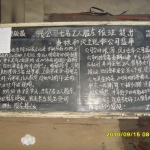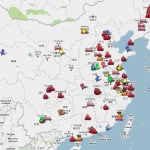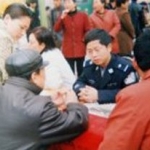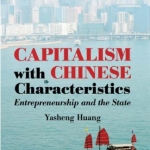Earlier this month, Wen Jiabao gave a rare interview to CNN:
Interview with Wen Jiabao (video)
Interview with Wen Jiabao (transcript)
And now this article by “Zheng Qingyuan” is “making the rounds”:
沿着正确政治方向积极稳妥推进政治体制改革 (新华/《人民日报》)
Translation: Strive for a brighter future (China Daily)
Western media have picked up on this, too:
Chinese Article Seems to Chide Leader (New York Times; requires registration)
Update (October 31st, 2010):
Yu Jiantuo: Public finance key to reform (China Daily)
Zheng Qingyuan: 以更大决心和勇气推进改革 (《人民日报》)
Translation: Full steam ahead with reform (China Daily)

In this issue we document how through the effort of one individual worker in Beijing, Liu Rongli, a small workplace union branch was set up successfully against all odds.
This case demonstrates that there is some support within the All-China Federation of Trade Unions (ACFTU) for workers to take the initiative to set up their own union branches, within the parameters of China’s Trade Union Law. Five years have passed since the ACFTU’s highly publicized campaign to set up union branches in Wal-Mart stores and to hold collective “consultation” with management. But the Wal-Mart unions in the end have not actively represented workers after all. By contrast, in this case Liu Rongli set up a union on his own initiative, and the message from the authorities was that his efforts were indeed legitimate.

The China Daily today reports about a map of ‘blood houses’ now online at google maps. Deaths, self-immolations and protests related to forced relocations are pictured on the maps in colorful icons.
There are nearly 100 events depicted on the map as of now, but jj expects that number to exponentially increase in the next few days as more people find out about the map. My reasoning? There are only a few tagged events in the second-tier city that jj now lives in, but I’ve read about well over a dozen violent demolition-related events here over the past 10 months.
It’s notable that the map only includes events that have been reported or verified in the media. And more notable that the maps is being widely reported in the Chinese and English language official media. It even made the editorial page of the local daily fishrag, including this joke…

Zhao Dongmin was sentenced to three years for disrupting public order last week, nearly a week before the scheduled sentencing date (the 25th).
Zhao has been in prison for more than a year after being arrested last August for organizing a drive to establish the Shaanxi Union Rights Defence Representative Congress, a body tasked with overseeing and monitoring SOE restructuring, and reporting corruption and abuses of power.
There are two possible explanations for the early sentencing….

More than a thousand workers at two Ricoh subsidiaries in Shenzhen have stopped work for more than a week as of Friday, according to a single report from the Guangdong News.
The action was sparked by the company’s announcement in early October to merge the two subsidiaries, located in the same industrial park. The workers apparently listed thirty demands to management, including compensation for occupational risk, a 50% increase in the basic wage, restructuring of the companies’ wage system, annual subsidies for return trips during the Spring Festival, etc.
Based on unverified website comments made by posters claiming to be Ricoh workers, nineteen representatives were selected to negotiate with the company a few days after the work stoppage began. After the nineteen signed an agreement with the company to bargain in good faith, the company threatened to fire them unless they pressured other workers to end the stoppage. Posters also complain at the labor officials are working with the company to push workers to end the dispute quickly, and that reporters have been denied entry into the plant.

Joel Andreas reviews Huang Yasheng’s Capitalism with Chinese Characteristics in the latest New Left Review, which also contains a response from Huang.
Andreas: “Huang’s diagnosis of the maladies afflicting rural China is clearly informed by one of the foundational myths of neo-classical economics—the ideal of competitive capitalism. Free competition, it is assumed, creates a level playing field on which small entrepreneurs naturally flourish. If small entrepreneurs are squeezed out, it must be the fault of the state, which tips the playing field to the advantage of favoured players. The reality is quite different. Market competition intrinsically centralizes property without the need for state intervention. Winners squeeze out losers, amass capital, capture market share and block new entrants. The state often facilitates this process by favouring the winners, but it can also inhibit it by protecting the weaker players. Over the last two centuries, peasants and small rural entrepreneurs have been the main losers as capitalism has swept across the globe.”